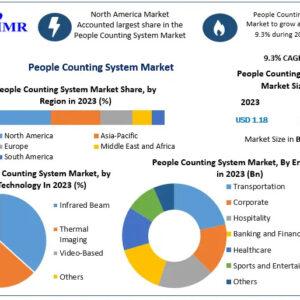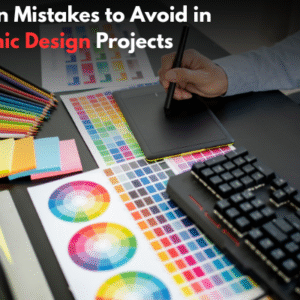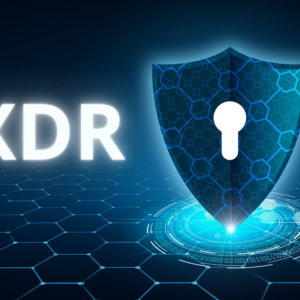Introduction
In 2025, mobile apps are more important than ever. Whether you’re building a social networking platform, an e-commerce marketplace, or a fitness app, finding the right developers is the key to success. Selecting the best developers is essential for every project, be it a health software, social networking site, or online store. The mobile market is still dominated by Android and iOS, with billions of users worldwide.
The difficulty is in locating knowledgeable, trustworthy developers who can make your idea a reality. In actuality, the app industry is overrun with developers making extravagant promises. Sorting out actual pros from amateurs or hobbyists takes strategy, study, and meticulous preparation.
This guide will walk you through exactly where to find the best Android & iOS app developers in 2025—and how to choose the right one for your specific needs.
Let’s dive into the world of hiring, so you don’t waste time, money, or opportunities.
Understanding Your Hiring Needs
Before you start sending out job posts or browsing developer profiles, you need to understand your exact needs. Hiring an app developer isn’t just about picking someone who knows how to code—it’s about finding the right fit for your project.
Different projects require different types of talent. If you’re building a simple app with minimal features, a freelancer might work perfectly. But if you’re developing a large, feature-rich product like a ride-sharing app or an on-demand delivery platform, you might need a full team of project managers, designers, and testers.
In-House vs. Outsourced Developers
- In-House Developers: These are full-time employees who work directly for your company. Ideal for long-term, ongoing projects or businesses that plan to maintain an internal tech team.
- Outsourced Developers: Independent contractors or teams hired specifically for your app project. Best for one-time or specialized projects.
Freelancers vs. Full Teams
- Freelancers: Great for MVPs (Minimum Viable Products), prototypes, or smaller projects. They’re flexible but require you to handle project management.
- Full Teams/Agencies: Perfect if you want a turnkey solution—design, development, testing, and launch support are all included.
Questions to Ask Before Starting Your Search
- What’s my budget?
- What’s my project timeline?
- Do I need both Android and iOS development or just one platform first?
- Will I need ongoing support after the launch?
- How much technical involvement am I prepared for?
By answering these upfront, you’ll save yourself countless wasted hours searching in the wrong places or hiring the wrong people.
Top Platforms to Hire Android & iOS App Developers
Now, let’s get into the meat of it: where to find the best developers. In 2025, you have more choices than ever before, from freelance marketplaces to high-end agencies specializing in mobile app development.
Best Freelance Platforms
- Upwork: Still one of the largest freelance marketplaces. You can filter developers by expertise, hourly rates, and ratings. Look specifically for “Top Rated” or “Expert-Vetted” freelancers.
- Freelancer.com: Similar to Upwork, but more flexible bidding structures. Ideal if you want multiple developers to pitch on your project.
- Fiverr Pro: Unlike regular Fiverr gigs, Fiverr Pro features pre-vetted professionals in mobile app development. Prices start higher, but you’re more likely to find reliable talent here.
Premium Developer Marketplaces
- Toptal: Known for connecting clients with the top 3% of freelance talent worldwide. Pricey—but you’re paying for elite quality.
- Gun.io: Focused on professional developers with proven track records, ideal for startups and businesses looking for serious engineering talent.
- Arc.dev: Great for hiring developers either for short-term contracts or long-term engagements. Developers on Arc are screened for both technical and communication skills.
Leading Development Agencies
- Clutch.co: Acts like Yelp, but specifically for agencies and tech firms. Provides detailed reviews, client feedback, and portfolio samples.
- GoodFirms: Similar to Clutch, focusing on agencies around the globe. Ideal for comparing agencies based on expertise and client satisfaction.
- DesignRush: Helps you filter development agencies by region, pricing, and specialization (iOS, Android, or cross-platform development).
These platforms give you options for any budget—from scrappy startups needing MVPs to enterprises building complex, global-scale solutions.
Hiring Local vs. Global Developers
One of the biggest decisions you’ll face when hiring developers in 2025 is whether to go local or global. Each approach has unique benefits and challenges, and choosing the right one depends on your priorities—cost, communication, and control.
Pros of Hiring Local Developers
- Time Zone Alignment: Working with local developers means you’re all on the same schedule, making real-time collaboration easy.
- Face-to-face communication: If needed, you can meet developers in person for brainstorming, sprint planning, or project reviews.
- Shared Language and Culture: Misunderstandings are reduced when everyone speaks the same language fluently and understands regional preferences.
- Legal Protection: Local contracts are easier to enforce through familiar legal systems if disputes arise.
Pros of Hiring Global Developers
- Cost Savings: Hiring from countries with lower living costs—like India, Eastern Europe, or parts of Southeast Asia—can dramatically reduce your development expenses.
- Wider Talent Pool: Limiting your search to one city or country shrinks your options. Going global gives you access to specialized skills and niche expertise.
- 24/7 Development Potential: With remote teams spread across time zones, development can happen round the clock, speeding up project timelines.
- Specialized Agencies: Some of the world’s top development agencies operate globally and bring elite skills to the table.
Cons of Each Approach
ApproachPotential Drawbacks
Local Often more expensive, smaller talent pool
Global Time zone challenges, and cultural misunderstandings, require stronger project management.
Managing Remote Development Teams Successfully
Global developers can be a goldmine of expertise—but only if managed properly. Here’s how to keep things running smoothly:
- Use Communication Tools Religiously: Slack for quick chats, Zoom for meetings, and Notion or Google Docs for shared documents.
- Agree on Working Hours: Even if you’re in vastly different time zones, set overlapping hours for team meetings or stand-ups.
- Document Everything: Write down processes, feedback, and decisions so no one gets lost in translation or forgets important changes.
- Assign a Project Manager: If you don’t want to handle the logistics yourself, hiring a dedicated project manager can bridge the gap between you and your remote team.
Hiring globally is like building a sports team with players from all over the world. With the right management, that diversity can be your greatest strength.
Evaluating Developer Skills Before Hiring
If you want your app to succeed, you cannot afford to skip skill evaluations when hiring a developer. Too many businesses fall into the trap of hiring based solely on personality or price—only to discover halfway through that the developer doesn’t have the skills to finish the job.
Remember, an impressive LinkedIn profile doesn’t equal real-world ability.
What to Look for in Android & iOS Developers
- Platform-Specific Expertise:
- For Android: Strong understanding of Kotlin and Java
- For iOS: Proficiency in Swift and Objective-C
- Familiarity with Frameworks:
- Cross-platform skills (Flutter, React Native) if you want one codebase for both Android & iOS
- UI/UX Sensibility: Can they create usable, attractive interfaces—or just backend code?
- Knowledge of APIs and Integrations: Your app might need to connect to payment systems, social platforms, or other services.
- Security Awareness: Especially important if you’re handling sensitive user data like financial or health information.
Conducting Technical Assessments
- Live Coding Tests: Platforms like HackerRank or Codility allow you to give coding challenges to see how a developer solves problems in real-time.
- Paid Test Projects: A small, paid assignment (like developing a login screen or basic feature) lets you gauge quality, speed, and communication style before committing.
- Review GitHub Profiles: Developers active on GitHub often contribute to open-source projects. You can see how they write code and collaborate with others.
- Ask Specific Technical Questions: “How would you implement offline functionality?” or “What’s your approach to handling app crashes on launch?”
Hiring based on gut feeling alone? Risky. Hiring based on a solid vetting process? Smart. Treat hiring like dating: don’t propose marriage after the first coffee—test compatibility first.
How Much Does It Cost to Hire App Developers in 2025?
One of the most common—and most important—questions people have when starting an app project is: How much is this going to cost me?
While it would be nice to offer a one-size-fits-all answer, the reality is that costs vary widely based on:
- The complexity of your app
- The experience level of your developer
- Whether you choose freelancers or agencies
- If you’re developing for iOS, Android, or both
That said, here’s a general guide to help you budget intelligently.
Average Costs for App Development in 2025
App TypeEstimated Price Range
Simple MVP App $5,000 – $15,000
Medium Complexity App $20,000 – $60,000
Feature-Rich, Custom App $70,000 – $150,000+
Enterprise-Level Solutions $150,000 – $500,000+
Factors That Affect Pricing
- Number of Features: More features = more development hours.
- Design Requirements: Custom animations, branding, and cutting-edge UI designs drive up costs.
- Backend Complexity: Apps requiring real-time features, chat, GPS tracking, or complex databases will need backend work.
- Security and Compliance: Apps in industries like healthcare or finance might need HIPAA or GDPR compliance features.
- Post-Launch Support: Bug fixes, version updates, and ongoing improvements often come with separate pricing or retainer agreements.
Pro Tip:
When you get a quote from a developer or agency, ask for itemized pricing. That way, you can see exactly what you’re paying for—and adjust features to fit your budget as needed.
Think of it like renovating a house. Want marble floors? You’ll pay more. Prefer solid wood instead? Still nice, slightly cheaper. Same with your app features.
Common Mistakes to Avoid When Hiring Developers
Hiring the wrong developer or rushing into a contract without preparation can quickly turn your exciting app project into a nightmare. To save you from costly mistakes, here are the most common traps—and how to dodge them.
1. Hiring Based on Cost Alone
Cheapest doesn’t mean best. It often means you’ll pay more later to fix bad code or poor design. Look for value, not just price.
2. Skipping the Portfolio Check
A good developer should be able to show you proof of work. No portfolio? That’s a red flag.
3. Poor Communication
If they’re slow to reply to emails or vague about details during the interview, expect worse communication during development.
4. No Written Agreements
Handshake deals don’t cut it in 2025. Always have a contract outlining payment milestones, deliverables, and intellectual property rights.
5. Ignoring Cultural Fit
Especially when working with agencies or remote teams, make sure their work style matches your expectations. A mismatch here can lead to frustration on both sides.
Hiring right the first time means saving yourself weeks or even months of headaches. Be picky—it’s your money and your vision on the line.
Questions to Ask Before Signing Contracts
Signing a contract with an app developer shouldn’t be treated lightly. You’re about to enter a partnership that could last for months—or years if you plan ongoing work. Asking the right questions upfront can save you from big surprises later.
Important Questions to Ask:
- Who owns the code and intellectual property once the project is done?
- Answer you want: You should own it completely.
- What’s the process for handling delays or missed deadlines?
- Clear deadlines should have contingency plans.
- How are additional features or scope changes handled?
- Ideally, these should be written as “change requests” with clear pricing per feature.
- Will I have access to the source code throughout the project?
- Yes—you should be able to review the code before the project is finished.
- Is post-launch support included? If not, what’s the cost?
- Don’t assume free post-launch work. Clarify exactly what happens after the launch.
A solid contract is like insurance—you hope you don’t need it, but you’ll be glad it’s there if things go sideways.
Ensuring Quality: Project Management Tips
Even if you hire the best developer on the planet, your app won’t magically build itself on autopilot. Strong project management keeps your idea on track, your developer accountable, and your budget intact.
Here’s how to stay in control:
1. Use Project Management Tools
- Trello, Asana, or ClickUp for task tracking
- Slack or Discord for quick communication
- Google Docs or Notion for documentation and feedback
2. Break the Project Into Milestones
Don’t try to deliver the whole app at once. Divide the project into:
- Design phase
- Prototype completion
- Beta release
- Final launch
3. Schedule Regular Check-Ins
Weekly or bi-weekly video calls help spot potential problems early. Don’t wait until the end to check the progress.
4. Give Feedback Early and Often
If you don’t like the way a feature is being implemented, say something immediately. Early corrections save time later.
5. Document Everything
Misunderstandings lead to delays. Written instructions, annotated screenshots, and shared task boards minimize confusion.
Think of yourself as the captain of a ship. Even with a great crew (developer), you still need to steer the wheel and plot the course.
Post-Launch Support: What to Expect
Launching your app isn’t the end of your journey—it’s just the beginning. Post-launch work is where many apps either shine or sink.
Here’s what good post-launch support looks like:
1. Bug Fixes
No matter how thorough the testing phase is, real users will find issues you didn’t. Expect at least a few months of active bug fixing.
2. Updates for OS Changes
Both Android and iOS release regular updates that may break parts of your app. Ongoing maintenance ensures your app keeps working as phones evolve.
3. New Features
As your app gains users, you’ll get valuable feedback. Turning that into new features will help you grow your audience and stay competitive.
4. Analytics Integration
Post-launch support should include tools like Google Analytics or Firebase so you can monitor how users interact with your app.
5. Ongoing Communication
Even after launch, stay in regular contact with your developer. The relationship doesn’t end—it evolves.
Launching is step one. Growing and optimizing over time? That’s where the real wins happen.
Latest Trends in Mobile App Development Hiring
As mobile technology evolves, so does the hiring landscape for mobile app developers. If you’re hiring in 2025, you need to be aware of industry trends to stay competitive—not just in building your app, but also in attracting the best talent.
Here’s what’s hot in mobile app developer hiring right now:
1. Demand for Cross-Platform Developers
Companies increasingly want apps that run on both Android and iOS—without doubling development costs. Developers who specialize in frameworks like Flutter and React Native are in huge demand because they can build once, deploy everywhere.
2. Preference for Developers with AI Integration Skills
AI isn’t just a buzzword anymore. Businesses want smarter apps—recommendation engines, personalized notifications, predictive search. Developers with machine learning and AI model integration experience have a significant edge.
3. Remote-First Hiring
Post-pandemic, remote work isn’t a perk—it’s the norm. Many companies hire globally to find better talent at competitive rates. Expect most professional developers to be remote-first by default in 2025.
4. Emphasis on Cybersecurity Skills
With cybersecurity threats on the rise, businesses want developers who can implement data encryption, secure payment integrations, and GDPR-compliant data storage. Security is now non-negotiable.
5. Popularity of Contract-to-Hire
Many businesses opt for short-term contracts first, allowing them to test a developer’s skills and work ethic before offering a full-time position or retainer contract. Developers expect this, and the best ones welcome it.
6. Developer Branding
Top developers are starting to market themselves like brands—with polished portfolios, social media presence, and blogs sharing technical insights. If you find a developer with an engaged following or respected reputation in coding communities, that’s a green flag.
7. Microservices and Modular Builds
More businesses prefer apps built with a modular architecture, allowing for individual features to be added or improved independently. Developers skilled in microservices architecture are becoming highly sought after.
Staying aware of these trends will help you not only hire faster—but hire smarter.
Conclusion
Hiring professional mobile app developers in 2025 doesn’t have to feel overwhelming if you have a clear strategy. Whether you’re looking to build the next big social network, a productivity tool, or a niche e-commerce app, the key to success is preparation.
Start by understanding your goals, set a realistic budget, exploring the right hiring platforms, and never rushing the process. Think long-term—not just about building an app, but about launching a brand experience your users will love.
With the right team in place, your idea can go from a spark of inspiration to a fully functioning, beautifully designed, revenue-generating mobile app.
Your success starts with one decision—hiring the right people.
FAQs
1. What’s the best platform to hire mobile app developers in 2025?
It depends on your needs. Use Upwork or Fiverr Pro for freelancers, Toptal or Arc.dev for vetted elite developers, and Clutch.co or GoodFirms for agencies.
2. Is it better to hire a freelancer or a development agency?
Freelancers are ideal for small projects or MVPs, while agencies are better for large-scale, complex apps with full teams to manage every detail.
3. What is scope creep, and how do I prevent it?
Scope creep happens when extra features or changes are added after the project begins, often increasing costs and delaying delivery. Prevent it by finalizing requirements early and adding changes only through formal, priced change requests.
4 How do I protect my intellectual property when hiring remote developers?
Use Non-Disclosure Agreements (NDAs), have clear contracts stating that you retain ownership of all work, and register copyrights for your app where applicable.
5. How often should I update my app post-launch?
At a minimum, every 3-6 months for bug fixes, security patches, or feature updates. Listening to user feedback will guide what to prioritize.





